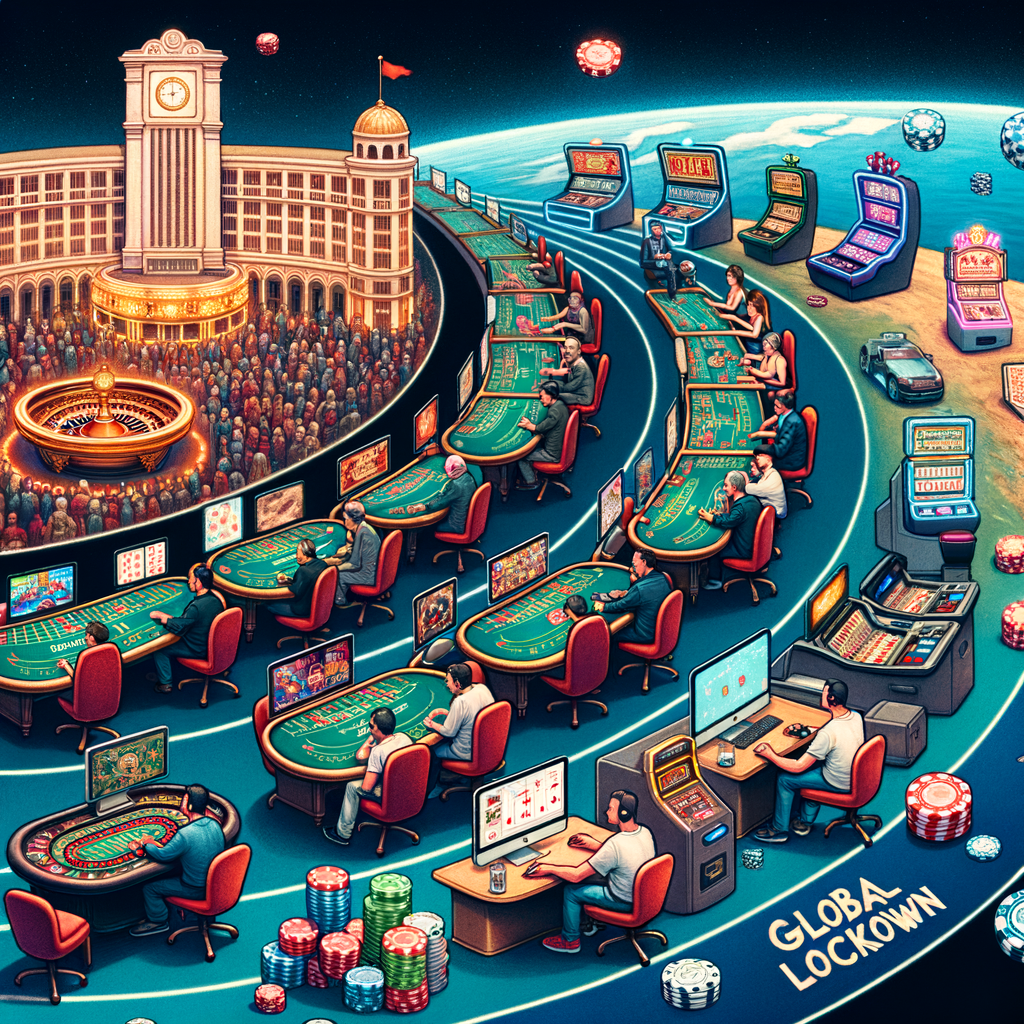The Impact of Global Lockdowns on Gambling Trends
The COVID-19 pandemic brought unprecedented disruptions to various sectors across the globe, and the gambling industry was no exception. Global lockdowns, which were implemented to curb the spread of the virus, resulted in the temporary closure of casinos, betting shops, and other gambling venues. This led to an immediate and significant decline in traditional forms of gambling, forcing operators to reassess their business models. According to industry reports, revenues plummeted by as much as 70% in the initial months of lockdowns, with establishments struggling to adapt to the rapidly changing landscape.
While land-based gambling venues faced dire consequences, the lockdowns simultaneously catalyzed a shift in consumer behavior. With millions stuck at home, individuals turned to online alternatives for entertainment. This shift was not merely a trend but a fundamental change in how gambling is perceived and engaged with. Gamblers who previously favored physical venues now explored the vast offerings of online gaming platforms, which allowed for a similar, if not enhanced, experience from the comfort of their homes.
Moreover, the pandemic has prompted an increase in responsible gambling initiatives. As online platforms gained popularity, concerns about gambling addiction and problem gambling also surged. In response, many jurisdictions implemented new regulations and protections aimed at promoting safer gambling practices. This dual focus on growth and responsibility has reshaped the gambling landscape in profound ways, leading to discussions on the future of the industry in a post-pandemic world.
| Gambling Sector | Pre-Lockdown Revenue | Post-Lockdown Revenue | Change (%) |
|---|---|---|---|
| Land-Based Casinos | $50 billion | $15 billion | -70% |
| Online Gambling | $20 billion | $35 billion | +75% |
| Betting Shops | $10 billion | $3 billion | -70% |
| Lottery Sales | $30 billion | $25 billion | -17% |
Adapting to Change: The Rise of Online Gaming During COVID
As global lockdowns extended, online gaming platforms rapidly evolved to meet the demand generated by new audiences. Major operators enhanced their digital offerings, creating immersive experiences that mimicked the social and interactive elements of traditional gambling. Features such as live dealer games and virtual reality experiences became increasingly popular, allowing players to engage in real-time gaming while interacting with live dealers and other participants. This shift highlighted the importance of innovation in retaining and attracting customers amid restrictions on in-person gatherings.
Mobile gaming also saw a dramatic surge during the pandemic. With more people relying on smartphones and tablets for entertainment, operators capitalized on this trend by optimizing their platforms for mobile access. The convenience of playing anywhere, whether during a break or while at home, appealed to many new players. Mobile gaming accounted for a significant portion of the overall online gambling revenue, showcasing a change in how consumers interact with gambling technology.
Furthermore, the pandemic highlighted the need for responsible gaming measures within the online environment. Many operators implemented stricter age verification processes, deposit limits, and self-exclusion tools to safeguard players. As the online gambling ecosystem expanded, so did the emphasis on creating a secure and responsible platform for users. This shift not only catered to the immediate needs of the market but also laid the groundwork for a more sustainable gambling industry in the future.
Q&A Section
Q: How did global lockdowns affect traditional casinos?
A: Traditional casinos experienced a drastic decline in revenue, with reports indicating losses of up to 70% due to closures during lockdowns.
Q: What are some new features of online gambling that emerged during the pandemic?
A: Features like live dealer games, virtual reality experiences, and enhanced mobile gaming options became prominent as online platforms adapted to attract players.
Q: Did responsible gambling measures increase during the pandemic?
A: Yes, many online gambling platforms introduced stricter age verification, self-exclusion tools, and deposit limits to promote responsible gambling as usage surged.
Q: Is the growth of online gambling expected to continue post-pandemic?
A: Most industry analysts believe that the growth of online gambling will continue as players have adapted to the convenience and accessibility of online platforms.
Q: What long-term changes can we expect in the gambling industry following COVID-19?
A: The industry is likely to see sustained growth in online gambling, an emphasis on responsible gaming, and potential regulatory changes to accommodate the evolving landscape.




Comments